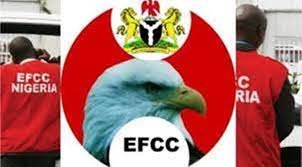Know the law and your rights, through our law reports made simple for lawyers and non-lawyers
UNION HOMES SAVINGS AND LOANS PLC
v.
MR. HUMPHREY ENECHUKWU
CA/L/386/2015
Facts
Mr. Humphrey Enechukwu entered a mortgage loan agreement with Union Homes Savings and Loans PLC. Mr. Enechukwu however defaulted on repayment of the loan and Union Homes petitioned the Economic and Financial Crimes Commission to intervene and recover the outstanding sum due on the loan agreement. The Economic and Financial Crimes Commission acted on the petition and invited Mr. Enechukwu to come to their office with post-dated cheques in satisfaction of the loan.
Feeling threatened, Mr. Enechukwu filed an application at the Federal High Court and sought to enforce his fundamental rights on the grounds that:
i. the mortgage transaction between himself and Union Homes is a purely contractual and civil and that the Economic and Financial Crimes Commission is not a debt collection agency
ii. the invitation by the Economic and Financial crimes Commission is illegal and an abuse of his fundamental human rights.
He, therefore, asked the Court to declare that his invitation by the Economic and Financial Crimes Commission on the behest of Union Homes was an infringement of his fundamental human rights. Mr. Humphrey also sought damages against Union Homes.
The Federal High Court found in favour of Mr. Enechukwu and granted his reliefs. Aggrieved by the decision, Union Homes appealed to the Court of Appeal and argued that since Mr. Enechukwu was neither arrested nor detained, his fundamental human rights were not infringed upon and a mere invitation by the EFCC cannot amount to a breach of an individual’s fundamental rights.
Legal Issue
Can mere invitation of an individual to the office of the Economic and Financial Crimes Commission amount to a breach of the individual’s fundamental human rights?
Decision
The Court of Appeal held that the petition by Union Homes to the EFCC spoke clearly that the relationship was a simple loan arrangement. Union Homes did not name the law or give particulars of any offence to warrant the involvement of the Economic and Financial Crimes Commission. Courts have consistently cautioned the Economic and Financial Crimes Commission against accepting loan recovery duties that are strictly civil. As the laws of this country stand, the Economic and Financial Crimes Commission has no power to delve into contractual and commercial obligations. Any step taken on these grounds is a violation of the Constitution of the country.
It is important to note that the powers conferred on the EFCC to receive complaints and prevent and/or fight the commission of financial crimes in Nigeria under Section 6(b) of the EFCC Act does not extend to the investigation and/or the resolution of disputes arising from simple contracts or civil transactions.
The mere invitation to Mr Enechukwu to report to the Economic and Financial Crimes Commission Office qualifies as a breach of his fundamental rights. Thus, apart from actual acts of violation of a person’s Fundamental Rights, the law allows a person who apprehends a likelihood of a breach of his said rights to apply for redress.
Mr. Enechukwu’s apprehension was real because an invitation to report was issued out and he acted within his constitutional rights to approach a Court for redress. He does not have to wait until he is arrested before seeking to enforce his rights. The right of the Economic and Financial Crimes Commission to invite any person is valid only when an offence is in issue. Only the commission of an offence can activate those provisions that suspend the full enjoyment of fundamental rights. Where no offence is committed, fundamental rights cannot be circumscribed or suspended. Mr. Enechukwu was therefore not hasty in going to Court.
The Court of Appeal dismissed the appeal and upheld the decision of the Federal High Court.
![]()



